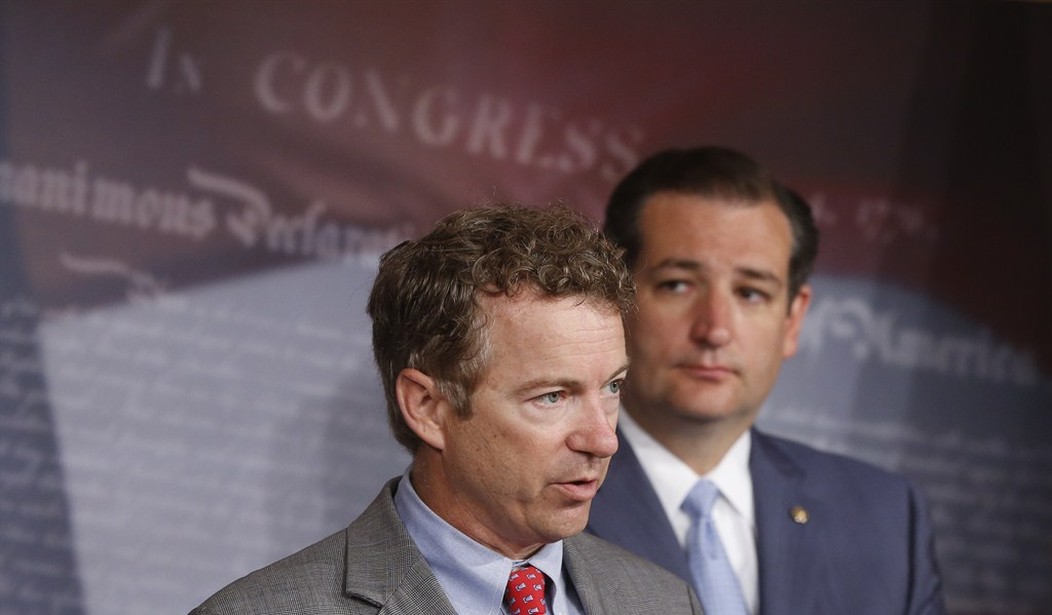Working late into the early morning on Friday, Republicans in the U.S. Senate narrowly passed a budget that balances, cuts the size and scope of the federal government, and doesn’t raise taxes. Before the measure passed, however, Congressional Democrats predictably described it as “an absolute farce” and “insensitive.” Nevertheless, since Senate Democrats failed to even introduce a budget for years when they controlled the upper chamber (although they did pass a budget in 2013) perhaps a few plaudits are in order:
The 52-46 vote came at 3:28 a.m., after the Senate considered hundreds of amendments and voted on dozens — many of them politically freighted, some of them contradictory, but none of them binding. No Democrats voted for the budget. Among Republicans, only Senator Rand Paul of Kentucky, who is likely to seek the White House, and Senator Ted Cruz of Texas, who has announced his intention to do so, voted no.Senator Michael B. Enzi of Wyoming, chairman of the Budget Committee, hailed a plan that he said would “protect the nation’s most vulnerable citizens, strengthen national defense and bring robust economic growth.”
Democrats said it would be a disaster — if it ever happened.
But will it happen? Unlikely, my friends, as it will never reach the president’s desk:
The budgets themselves are nonbinding and do not require a presidential signature. Once each chamber passes its version, the House and Senate will try to agree on a common plan, something that last happened in 2009. Then lawmakers will draft separate legislation to implement the programs.
While the Senate budget is imperfect and therefore did not earn universal GOP support, it is a much better alternative than what the president served up, which was deemed “dead on arrival” by Republicans because of its massive spending increases and failure to balance. Surprise. And unlike Senate Democrats, at least Senate Republicans are following the letter of the law and governing.
Recommended
“The real fights on the budget will come this summer, as those appropriations bills work their way through a similar process,” Ed Morrissey explains to readers over at Hot Air. “Still, it’s the first time in six years that Congress has done its job at all, let alone on time.”
And that, of course, is commendable. Embarrassingly, the normal budget process was all but jettisoned under the heavy-handedness of then-Senate Majority Leader Harry Reid (D-NV) when Democrats controlled the upper chamber.
Perhaps this is why so few Republican lawmakers will be sorry to see him go.

























Join the conversation as a VIP Member